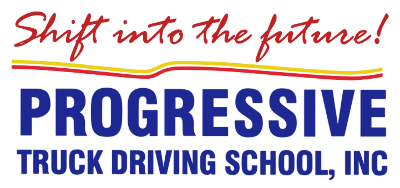What to Expect in Your First Year as a CDL Truck Driver
Welcome to Your First Year in Trucking
Starting your career as a first year CDL driver is a major milestone. You’ve passed your CDL driver training, received your license, and now you’re about to experience what life on the road really looks like. This first year is filled with learning curves, challenges, and growth—but with the right mindset, it can set the foundation for a long and rewarding career in CDL trucking.
Whether you’re just stepping out of a classroom or transitioning from another field, knowing what to expect can help ease the transition and make the most of your journey ahead.
Getting Started—What Happens After CDL Training
Once you graduate, the real training begins. Most trucking companies will place new hires into a mentorship or on-the-job training program. You’ll likely ride along with an experienced driver, observe how they manage loads, and learn company-specific processes.
This phase helps bridge the gap between the classroom and the cab, giving you valuable insight into day-to-day operations. It’s also where you’ll begin to understand the expectations of a new CDL job—from how to communicate with dispatchers to keeping track of delivery schedules.
For many, this is when the CDL trucking career starts to feel real. You’re no longer preparing to become a trucker—you are one.
The Learning Curve on the Road
The first year will test more than your driving skills. You’ll navigate unfamiliar highways, face unpredictable weather, and adjust to the CDL trucking lifestyle—which often includes long stretches away from home, eating on the go, and living out of your truck.
Being prepared mentally and emotionally is just as important as technical knowledge. New truck driver expectations include dealing with strict delivery windows, operating electronic logging devices (ELDs), and handling occasional mechanical issues.
Use this time to absorb everything. Apply rookie truck driver tips from mentors and peers. Always pre-trip your truck, double-check load paperwork, and monitor your hours of service. Experience is the best teacher, but a proactive attitude goes a long way.
Managing Time, Routes, and Fatigue
In your first year, time is your most valuable asset. Trucking success is often determined by how well you manage your time—not just behind the wheel, but during rest stops, load pickups, and deliveries.
Learning how to balance productivity and safety is critical. Plan routes in advance, track weather and traffic conditions, and leave room for unexpected delays. This is where mobile apps, digital logs, and dispatch support become your best friends.
One of the most underestimated parts of the job is fatigue. As a beginner truck driver, you’ll quickly learn that getting rest is non-negotiable. Fatigue not only endangers your life but others’ on the road. Develop healthy sleep habits and stick to a consistent schedule when possible.
Pay Expectations and Financial Planning
Many drivers enter trucking expecting immediate financial rewards, but it’s essential to manage expectations. Your first year pay might not reflect the full earning potential of your license yet.
Drivers are often paid per mile, and rates can vary based on freight type, region, and experience. Don’t be discouraged—many companies offer performance-based bonuses and annual raises. Track every mile and delivery closely to understand your earnings structure.
Budgeting smartly during this period is key. Save for downtime between jobs or during slow seasons. Know the breakdown of your pay—detention time, layover pay, per diem—and make sure you’re tracking your income for tax purposes. Smart money management during year one sets you up for long-term success in the industry.
Tips to Thrive in Your First Year
Here’s some real-world first year truck driving guide tips to keep you safe and successful:
- Invest in Your Gear: Good work boots, a quality sleeping bag, and reliable communication tools can make all the difference.
- Log Everything: Keep clean and accurate logs to avoid violations and build trust with dispatch.
- Stay Professional: Build a solid reputation by showing up on time, being polite at docks, and handling paperwork with care.
- Plan for Home Time: Maintaining relationships and mental health is crucial. Communicate openly with loved ones and plan downtime strategically.
- Keep Learning: Regulations, best practices, and industry tech are always evolving. Commit to being a lifelong learner.
Embrace the Journey—It Gets Better
The transition into a professional truck driver isn’t just a career move—it’s a lifestyle shift. Life after CDL school can feel overwhelming at first, but every mile you drive brings confidence and clarity.
Your first year is your proving ground. It’s where habits are formed, lessons are learned, and resilience is built. Whether you’re navigating your first snowstorm, sleeping in a truck for the first time, or hauling your first heavy load in unfamiliar states, remember this: You’re gaining the experience that will make you an expert.
Stay committed, stay curious, and most of all—enjoy the road ahead.


